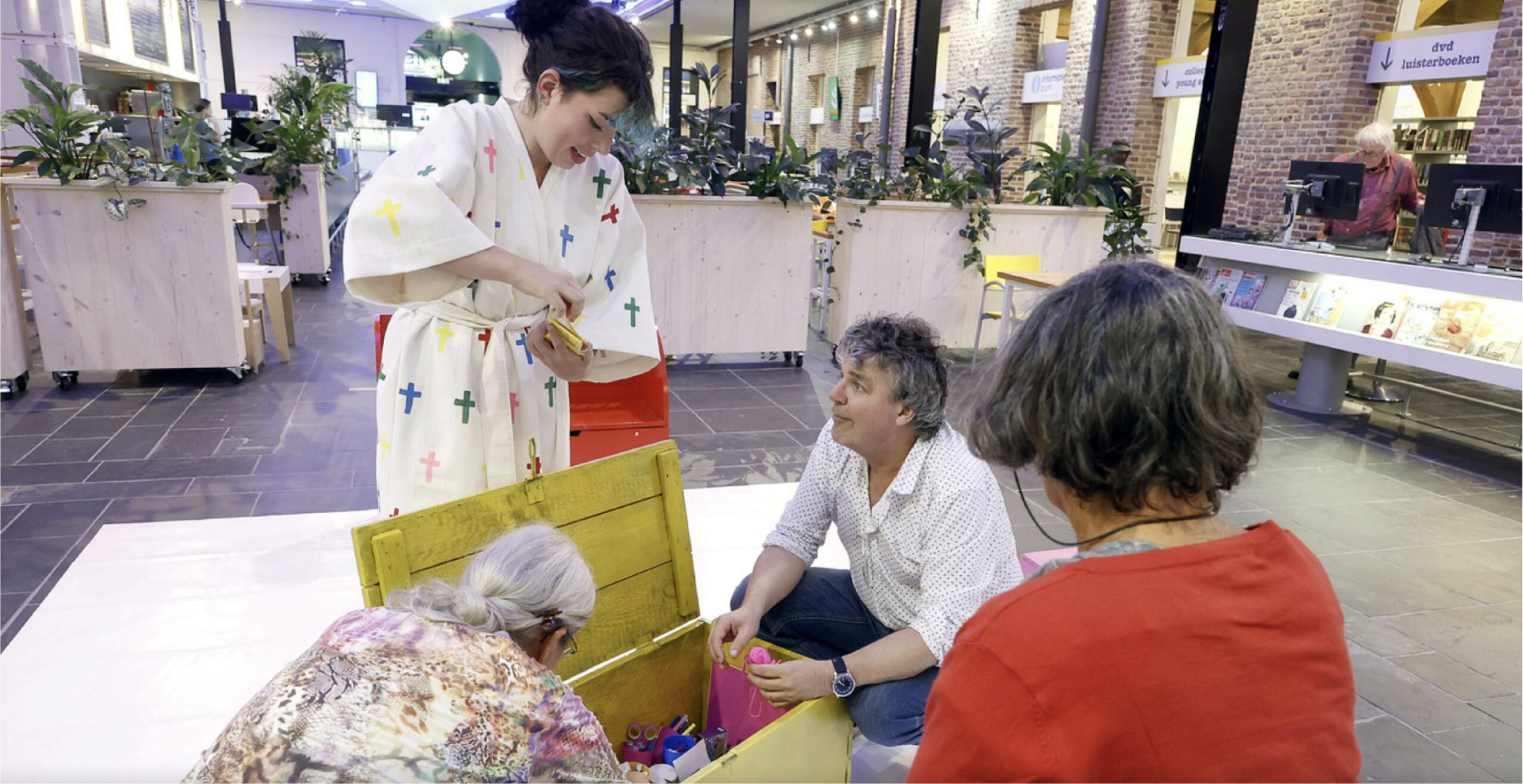YODO
On April 20, 2022, I was involved in a discussion evening on death organized by the study association Animo and Studium Generale of Tilburg University. One of the speakers was artist Laurien Schrooten, who has designed a workshop titled #YODO. YODO is a playful yet serious workshop in which participants engage in conversation about death and their own funeral.
YODO – You Only Die Once triggered me. Is it true that we only die once? The fact that we know we are mortal, makes us creative. Research has proofed that death awareness makes us creative: creativity as a means to make life meaningful, what we do now is relevant, and will not be destroyed by death. Being creative makes us more or less immortal.
Some cultures, e.g. South Korea and China, use death awareness and death experiences to stimulate creativity and to discover what really matters in life. In Shanghai, a playful ritual of death, cremation, and rebirth allows participants to experience all of these sensations in a kind of simulation. Participants begin their experience of the death simulator with a game that challenges them to consider important questions about life and death. Then they lie down on a conveyer belt that leads them into a furnace-like chamber. Heated to 40 degrees Celsius, the chamber blows out hot air and has flames projected on the walls. The simulation ends as participants are led into a second, white chamber, which they enter through a latex ‘womb’ to represent rebirth. The participants are encouraged to make a note of any final thoughts and wishes, and can either share these reflections on the spot or keep them as a reminder of the simulation.
A new notion of personhood emerges beyond the corporeal body
In South Korea, funerals for the living are organized. This ritual emerged as a response to the high numbers of suicide. The people who think ending their lives is the only way out from social pressure, stress, high workload are invited to attend their own funerals to reconsider what makes their lives valuable. The participants of this healing ritual wear traditional funeral dresses, have their portraits taken, write farewell letters and lay inside their closed coffin for 10 minutes. Is it necessary to die before you learn to live? Dying for a better life!
YODO – You Only Die Once, but who is that you? Nowadays, we live in an information age. Briefly stated, humans are information, we are our brains. The book On not dying (subtitle: secular immortality in the age of technoscience) by Abou Farman (2020) is about the relationship between technology, media, data and immortality. A quote from the introduction to give an idea of what this book is about:
Immortality is the very promise embedded in modern secular futures, not only because the biopolitical or life-saving logic of modern medicine slips down that slope with its promise to stave off death and debility, but because immortality is the redemptive end of progress and technoscientific advance.
New technologies make posthumous messaging possible. Online services allow the living to continue communicative ties with the dead and vice-versa! Apps already exist that collect almost everything that you create during your lifetime and process this huge amount of information using complex Artificial Intelligence algorithms. This involves incorporating data from Facebook, Twitter, Instagram, e-mail, photos, video, location information. This data will be used to interact with the living, e.g. by sending birthday wishes to your children. A notion of personhood emerges, which moves beyond the corporeal body: a new notion of digital afterlife. So, the question is: who is you in the slogan You Only Die Once?
